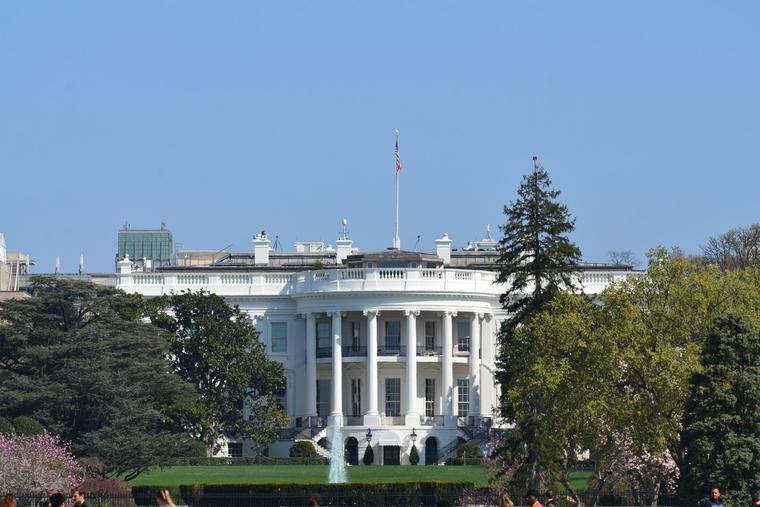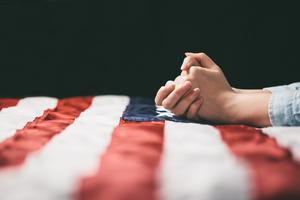Religious Freedom and the White House: Who Is (and Isn’t) Advocating for Faith-Based Groups?
COMMENTARY: Despite the current narrative, the truth is that religious believers from every racial and ethnic background are being targeted by the Biden administration.

Traditional religious belief is under assault by the Biden administration. Catholics should ready ourselves for the battle to preserve the rich tradition of religious pluralism in the United States. It’s going to be an uphill one.
Before President Biden’s inauguration, a disturbing plan of action was circulating among progressives. The Center for American Progress (CAP), whose executive director is John Podesta, Bill Clinton’s former White House chief of staff, and whose board members include Stacey Abrams, a former Georgia gubernatorial candidate who has become a darling of the progressive left, drafted something of a manifesto called “Recommendations for the Biden Administration on Engaging With Religious Communities.”
Far from welcoming diverse faith traditions, the CAP caricatured Christians who don’t tick the progressive boxes and, if that wasn’t enough, sneakily implied that only “white Christians” are pro-life and pro-family. The authors asserted:
“Currently, public discourse on faith and politics too often focuses exclusively on white Christians — whether Catholic, mainline Protestant, or evangelical Protestants — while failing to recognize Christians of color, secular humanist and unaffiliated groups, and adherents of religions other than Christianity, all of which continue to represent an increasingly larger share of the population.”
The truth is that religious believers from every racial and ethnic background are being targeted by this administration. The most alarming evidence of this is the Equality Act, a sweeping piece of legislation that seeks to expand the definition of “sex” for purposes of federal anti-discrimination laws to include sexual orientation and gender identity.
The U.S. Conference of Catholic Bishops warns that the Equality Act “discriminates against people of faith, threatens unborn life, and undermines the common good.” Particularly insidious is the Equality Act’s prohibition of claims or defenses under the Religious Freedom Restoration Act (RFRA).
Though it looks like the Equality Act doesn’t have enough support to pass in the Senate, it may not matter much in practice. On his first day in office, Biden signed an executive order directing all federal agencies to adopt this expanded definition of unlawful sex discrimination in areas such as employment, housing, health care, education and credit. While Biden’s order cannot bar claims and defenses under RFRA or the First Amendment, religious objectors — and there will be many — must prepare costly and time-consuming litigation.
Isn’t there an ally in the White House for faith-based groups?
In February, the president reopened the White House Office of Faith-Based and Neighborhood Partnerships. He did so by issuing yet another executive order. When the order was issued, I wrote that “Biden’s Partnership Office is sure to promote and partner with secular philanthropic groups across the country and around the world.”
Sure enough, the leaders of the “Partnerships Office” recently participated in a virtual meeting with atheist and secular groups.
The meeting was organized by the Secular Coalition for America, a group that claims to be “the nation’s premier advocacy organization representing atheists, humanists, agnostics, and other nontheists.” After the meeting, the Secular Coalition posted that it was “optimistic that the Office was indeed truthful when they first declared that they ‘will not prefer one faith over another or favor religious over secular organizations’ and stressed their respect for church-state separation.”
Melissa Rogers, executive director of the Partnerships Office, commented that she was “grateful to hear from diverse Americans and to explore opportunities to work together to serve people in need.” Is Rogers as open to Americans with traditional religious beliefs on life, human sexuality and the family? And what about our nation’s second Catholic president?
On the occasion of the annual National Day of Prayer at the beginning of the month, President Biden proclaimed that, “throughout our history, Americans of many religions and belief systems have turned to prayer for strength, hope and guidance.” He also said that “as we continue to confront the crises and challenges of our time — from a deadly pandemic, to the loss of lives and livelihoods in its wake, to a reckoning on racial justice, to the existential threat of climate change — Americans of faith can call upon the power of prayer to provide hope and uplift us for the work ahead.”
It isn’t surprising that Biden’s proclamation restates progressive talking points on racial injustice and climate change. What is surprising is that, except for a reference to the year of Our Lord 2021, it failed to mention God. A majority of the justices on the Supreme Court, by contrast, recognize the unique and specially protected character of religious belief and expression in the United States. They do so not because they are “more religious” than the president, but because they faithfully guard and interpret the Constitution and federal law.
For example, a few years ago, the court chastised the Colorado Civil Rights Commission because of its hostility toward Jack Phillips, the Christian baker and owner of Masterpiece Cakeshop who refused to make a custom cake for a same-sex wedding. Writing for the majority, then-Justice Anthony Kennedy observed that the “neutral and respectful consideration to which Phillips was entitled was compromised” by comments by members of the Colorado Civil Rights Commission. In his concurring opinion, Justice Neil Gorsuch emphasized that, in the United States, “the place of secular officials isn’t to sit in judgment of religious beliefs, but only to protect their free exercise.”
Gorsuch’s colleague, Justice Samuel Alito, gave an address last November to the Federalist Society’s National Lawyers Convention. The 15-year veteran of the court warned that, “in certain quarters, religious liberty is fast becoming a disfavored right, and that marks a surprising turn of events.” He questioned “whether our society will be inclusive enough to tolerate people with unpopular religious beliefs.” Alito said that the court during his tenure had done much to protect the freedoms of speech and religion, but “in the end, there is only so much that the judiciary can do to preserve our Constitution and the liberty it was adopted to protect.” He concluded by quoting the U.S. jurist Learned Hand, who wrote:
“Liberty lies in the hearts of men and women. When it dies there, no constitution, no law, no court can do much to help it.”
We have here the makings of a mighty conflict. President Biden and his advisers will use every instrument they have at their disposal to advance the policy objectives of progressives. The Supreme Court will certainly be called upon to curtail any aggression toward religious belief.
The justices’ steadfast commitment to the rights guaranteed under the Constitution is reassuring, but can only go so far. Americans — whether religious, “nones” or somewhere in between — must also cherish religious liberty. If we don’t, it will be taken from us.

















